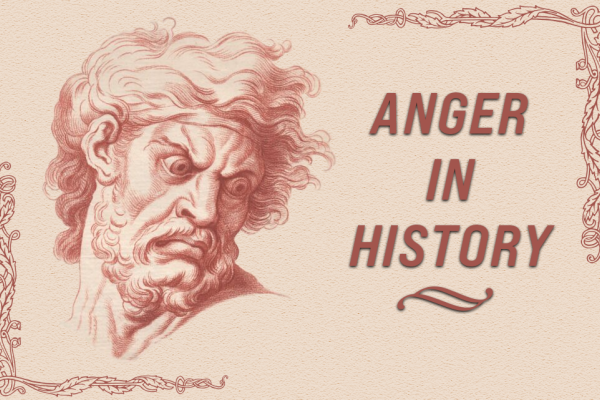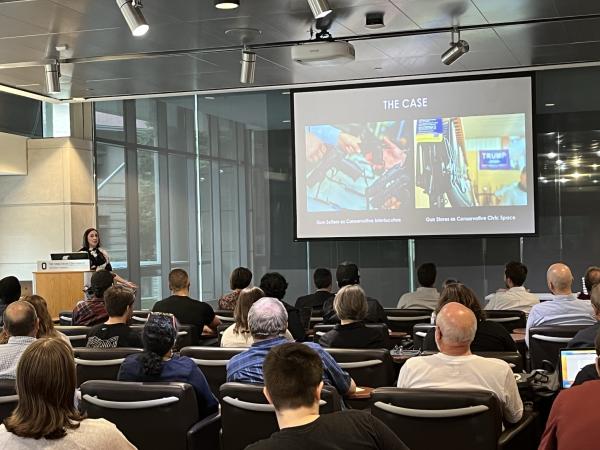CHR Anger in History Series Featured in The Lantern


Center for Historical Research Analyzes Human Race Through "Anger in History" Program
by Tommy Hudec for The Lantern (published September 20, 2023). (Copied here under Fair Use.)
Ohio State's Center for Historical Research is hosting a new program this year, "Anger in History," which aims to explore past and present anger through the lenses of different social sciences.
According to the Anger in History website, the lecture series brings together professors and writers with knowledge on a diverse set of viewpoints that discuss how different social groups experienced anger throughout history. The program kicked off Tuesday, Sept. 12 with an event called "Merchants of the Right: Gun Sellers and the Crisis of American Democracy," led by University of Arizona associate professor of sociology Jennifer Carlson, the website stated.
Sara Butler, the center's director and the Department of History's King George III Chair in British History, said Carlson's talk provided insight into harmful effects resulting from the increasing politicization of guns, or the process by which gun sellers perpetuate firearms as a controversial political topic.
"Her point is that it's not just about guns any more and gun ownership and the right to own a gun, it's all very political" Butler said. "There's a lot of anger out there and the tool of the angry man happens to be a gun."
This event was just the first in a series of eight spanning across the 2023-24 school year, according to the program's website.
"We have a very interdisciplinary series, so we have sociologists, anthropologists, historians, philosophers coming in all looking at anger in history from different angles," Butler said.
Butler said the next Anger in History event is scheduled for Oct. 2 and will features Xin Fan, a teaching associate in modern Chinese history at Cambridge University. She said Fan's talk is titled "The Making of the Angry Chinese: Colonial Gaze, Anti-Colonial Sentiments, and the Rise of Chinese Nationalism."
"Our next speaker is actually coming in to talk about China and a lot of interesting things have been going on in China lately that has alienated it a lot from the West, " Butler said. "We're gonna be thinking more about how anger has played a role in that."
Coming up Oct. 24 is "OUR AGE OF ANGER: Can the Humanities Help?" during which Owen Flanagan -- James B. Duke Distinguished Professor Emeritus of Philosophy at Duke University -- will speak about the evolution of private and public expressions of anger over time.
"I'm 74 years old and I've never lived in angrier time," Flanagan said. "As a philosopher I wonder about what's going on, why have these times been so much angrier than other times."
Flanagan said anger is an undeniably pervasive force in modern society and isn't just seen in predictable spheres such as politics.
"You just see it on social media, where there's an awful lot of something in the vicinity of f__ you, f__ you too," Flanagan said. "That's a zone of life in which I'm very worried about the example it sets for young people."
Flanagan said it's particularly important for young people like college students to recognize the role anger plays in their daily lives. He said excessively irritable reactions to normal situations, such a lashing out at a telemarketer on the phone, have become too normalized.
"You actually don't have too many good role models for some of these things," Flanagan said. "The first instinct is to get angry, and I think that's terrible for the moral and mental health of young people."
Even if hope seems scarce Flanagan said that there is a lot young people can do to help in the face of anger.
"Each generation gets the certain features of the world that sucks delivered to them on a silver platter" Flanagan said. "We're just gonna have to figure out collectively how to change our norms and practices. One part is recognizing that they can be changed."
The Anger in History series will be hosting events until April 8, 2024. More information about specific lectures or the program in general can be found on its website.
